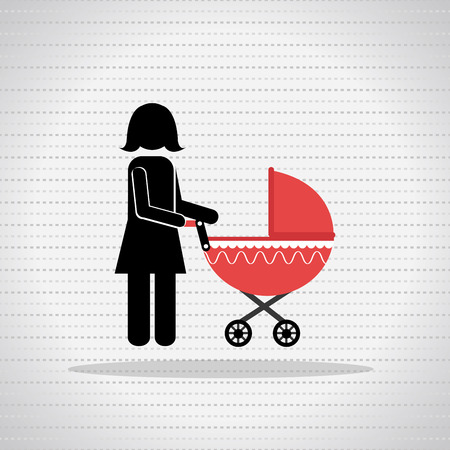Introduction to Sustainable Parenting in the UK
Welcoming a new baby is a joyful milestone, but it also brings new responsibilities—especially when it comes to making choices that are both eco-friendly and budget-conscious. In the UK, more parents are embracing sustainable living, looking for ways to reduce waste, make mindful purchases, and protect the environment for future generations. This growing trend reflects a broader shift among British families who want to nurture their children in harmony with nature without compromising on quality or breaking the bank. As you begin your parenting journey, understanding what it means to be both green and thrifty can empower you to make informed decisions that benefit your baby, your wallet, and the planet.
Choosing Second-Hand and Upcycled Baby Gear
Embracing second-hand and upcycled baby gear is a practical way for UK parents to care for both the environment and their wallets. With so many little ones quickly outgrowing essentials, there’s an abundance of gently-used items waiting for a new home. Sourcing pre-loved baby gear not only reduces waste but also fosters a sense of community, as families share resources and stories.
Where to Find Pre-Loved Baby Essentials
From bustling charity shops on the high street to thriving online platforms, the UK offers numerous avenues to access quality second-hand goods. Local swap events and NCT Nearly New Sales are particularly popular, giving parents an opportunity to connect and exchange items in person. Here’s a quick guide to your options:
| Source | What You’ll Find | Benefits |
|---|---|---|
| Charity Shops | Clothes, toys, prams, books | Supports local causes; easy to browse in person |
| Online Marketplaces (e.g., Gumtree, Facebook Marketplace, eBay) | Cots, car seats, feeding equipment | Wide selection; convenient shopping from home |
| Family Swap Events/NCT Sales | Maternity wear, nursery furniture, slings | Meet other parents; often get advice and recommendations |
Sustainable Choices for Every Family
Selecting upcycled or refurbished baby gear goes beyond saving money—it encourages mindful consumption. Many UK-based businesses now specialise in refurbishing prams and cots to ensure safety standards are met, making it even easier to choose sustainable options with peace of mind.
Nourishing Your Nest: The Emotional Benefits
Opting for second-hand isn’t just about being frugal or eco-conscious; it’s also deeply rewarding. Passing on cherished items or finding something special at a local event can foster feelings of gratitude and connection—key ingredients for wellbeing during pregnancy and early parenting. By choosing pre-loved baby essentials, you’re nurturing your family and your community while protecting the planet for future generations.

3. Opting for Reusable Nappies and Eco-Friendly Baby Products
Choosing reusable nappies and eco-friendly baby products is a practical step towards both sustainability and saving money for UK families. Reusable nappies, or cloth nappies as they’re commonly known in Britain, have come a long way from the terry squares our grandparents used. Today’s versions are easy to use, comfortable for your little one, and kinder to the environment—helping reduce landfill waste and cutting down on long-term costs.
Benefits of Reusable Nappies
By opting for washable nappies, you’ll significantly decrease your household’s single-use plastic consumption. While there is an upfront investment, most families find that over time, reusable nappies cost less than disposables. Many local councils across the UK even offer nappy incentive schemes or vouchers to support parents making the switch. Plus, with a range of adorable prints and fits, modern cloth nappies can make nappy changes more fun!
Eco-Friendly Baby Essentials
The benefits don’t stop at nappies. Switching to biodegradable baby wipes, organic cotton muslins, bamboo washcloths, and wooden teethers further reduces your family’s environmental footprint. These items are widely available in high street shops like Boots or supermarkets such as Tesco, as well as online retailers focused on green parenting.
Practical Tips & Local Support Networks
If you’re new to reusables or eco swaps, connect with local parenting groups or community centres—many areas across the UK have cloth nappy libraries where you can borrow different brands before committing. Online forums and Facebook groups dedicated to sustainable parenting in Britain are a treasure trove of tips on laundry routines, stain removal, and troubleshooting common issues. Remember, every small change makes a difference—and by building these habits early on in your pregnancy journey, you’re giving your baby a healthy start while caring for the planet.
4. DIY and Homemade Baby Essentials
For UK parents seeking both eco-friendly and budget-conscious solutions, making your own baby essentials is a practical and rewarding choice. By embracing a do-it-yourself approach, you can create nourishing baby food, fun toys, and even adorable clothing using local resources—benefiting both your bank balance and the environment.
Homemade Baby Food: Nutritious and Affordable
Preparing your baby’s meals at home not only ensures fresh nutrition but also reduces packaging waste. Sourcing seasonal British produce from local markets or farm shops supports community growers and keeps costs low. Try simple purees such as carrot, sweet potato, or apple—steam, blend, and portion into reusable containers for easy meal prep.
| Ingredient | Season | Cost-saving Tip |
|---|---|---|
| Carrots | Autumn-Winter | Buy in bulk at local markets |
| Apples | Autumn | Look for “wonky” fruit specials |
| Pumpkin | Autumn | Use leftovers after Halloween carving |
| Peas | Spring-Summer | Grow your own in garden pots |
DIY Toys: Safe and Sustainable Fun
Create engaging toys from upcycled household items—think fabric scraps for soft blocks or clean jars filled with colourful beans for sensory play. Crafting toys at home not only saves money but also lets you control materials, ensuring they’re non-toxic and safe for your little one.
Simple Toy Ideas:
- Sensory bottles: Fill empty water bottles with rice, pasta, or lentils for rattles.
- T-shirt knots: Cut old T-shirts into strips and knot them together for tug toys.
- Cotton reel stackers: Collect empty thread spools for stacking games.
Sewing Your Own Baby Clothes: Upcycle and Personalise
If you have basic sewing skills, turning outgrown adult clothes into baby grows or bibs is a great way to upcycle fabrics. Local charity shops often stock affordable textiles perfect for beginners. There are plenty of free patterns online tailored for UK parents seeking sustainable options.
Benefits of DIY Baby Essentials:
- Cuts down on plastic packaging and manufacturing emissions.
- Saves money compared to shop-bought alternatives.
- Nurtures creativity and bonding with your baby.
- Supports local businesses when sourcing materials.
By opting for homemade baby essentials, UK parents can make meaningful choices that support both their family’s wellbeing and the health of the planet—all while enjoying the personal satisfaction that comes from crafting something special by hand.
5. Joining Community Support and Sharing Schemes
Being a parent in the UK means you’re never truly alone—especially when it comes to sustainable baby spending. Tapping into local community support and sharing schemes is an eco-friendly and budget-savvy way to provide for your baby while connecting with like-minded families.
Parent Groups: More Than Just Advice
Across the UK, parent groups such as Mumsnet, Netmums, and local Facebook parenting communities offer much more than advice on sleep routines or weaning. These groups often facilitate swaps and giveaways of gently used baby gear, clothing, and toys. It’s common to see posts offering prams, cots, and bundles of baby clothes free or at a nominal price—helping you save money and reduce landfill waste.
Toy Libraries: Rotating Fun Without the Waste
Toy libraries are becoming increasingly popular in British towns and cities. Organisations like Lambeth Toy Library in London or The Children’s Toy & Book Library in Glasgow allow families to borrow high-quality toys for a small fee or annual membership. This not only keeps your child engaged with new playthings but also cuts down on clutter and prevents toys from ending up in landfill after just a few months of use.
Clothing Exchanges: Sustainable Style for Little Ones
Babies outgrow their clothes at lightning speed, making clothing exchanges a practical choice for eco-conscious parents. Initiatives like BounceBack Clothing Exchange, NCT Nearly New Sales, and local church swap events let you trade your child’s outgrown outfits for the next size up. It’s a brilliant way to keep your baby well-dressed without constantly buying new—and it fosters a lovely sense of community spirit.
Other Community Resources Worth Exploring
Don’t overlook local libraries, which often host story time sessions and lend out parenting books, or Baby Banks—charities like Little Village or Baby Basics—that provide essential items to families in need. Many areas also have WhatsApp groups where parents coordinate sharing everything from bouncers to bottles.
By joining these community-based resources, you not only lighten the financial load of raising a child but also contribute to a culture of sharing and sustainability that benefits all UK families.
6. Long-Term Money-Saving and Sustainability Habits
As your little one grows, nurturing a lifestyle that balances both eco-friendliness and financial well-being becomes increasingly important. By establishing mindful habits early on, you’ll not only save money in the long run but also raise a child who values sustainability. Here are some practical tips for UK parents:
Mindful Consumption: Less is More
Encourage conscious purchasing by focusing on quality over quantity. Invest in versatile, durable items that can adapt as your child grows, and consider swapping or borrowing baby gear through local parenting groups or community swaps. This reduces waste and helps you connect with other like-minded families.
Energy Efficiency at Home
Opt for green energy suppliers wherever possible—many UK providers now offer renewable tariffs. Simple changes such as using LED bulbs, unplugging unused devices, and washing clothes at lower temperatures can significantly reduce your household’s carbon footprint and monthly bills.
Tap into Government Support
The UK government provides several grants and schemes to help families go green. Explore options like the Warm Home Discount Scheme, Child Benefit, and Green Homes Grant. These initiatives can ease the upfront costs of making your home more energy efficient or support you financially during your parenting journey.
Pass Down Sustainable Values
Lead by example: involve your child in simple eco-friendly actions, such as recycling, composting food scraps, or tending to a small garden. As they grow, talk about why these choices matter—for their health, the family’s finances, and the planet’s future.
By weaving these habits into daily life, you empower your family to thrive sustainably—making eco-conscious living not just a trend but a lifelong legacy.

